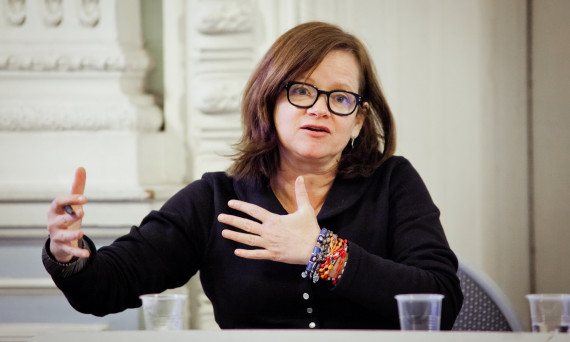Being a hegemonic doctrine in the world politics, “democracy” does several things at the same time: it legitimizes the status quo of parliamentary republic, allows for imperialist interventions of NATO and US into affairs of periphery countries, and eventually provokes movements for “real” democracy, such as the global wave of protests in 2011-2012. However, as this wave of protests (including the US “Occupy” and the Russian “Fair election” movement) has shown, the grassroots democratic movement increasingly finds its limitation at the level of nation state. The national interpretation of democracy allows the existing entrenched elites to highjack some of these movements and to stop the regional internationalist movement (such as the one potentially developing in the Arab world). The movements in the European Union, being in part anti-European, only in a slow and difficult way produce the solidarity necessary to attack the actual centers of decision-making in the EU. And in the countries of semi-periphery like Russia, the rebellious democrats represent a small minority compared to the more conservative and nationalist masses: the talk of “democracy” is here therefore highly ambiguous.
Program:
10.45 - 11.00: Opening remarks (Artemy Magun, Viatcheslav Morozov )
11.00 - 11.50: Artemy Magun (European University at St. Petersburg, St. Petersburg, Russia). Philosophical foundations of democracy.
12.00 - 13.00: Viatcheslav Morozov (University of Tartu, Tartu, Estonia). Locating International Democracy.
13.00 - 14.00: Andrey Makarychev (Free University of Berlin, Berlin, Germany). Normalization vs. Democratic Normativity: Political Implications of Debates in Germany and Russia
coffee and tea available during the session
14.00 - 15.00: lunch
15.00 - 15.50: Daniel de Mendonça (Federal University of Pelotas, Pelotas, Brazil). Populism as democratic will.
15.50 - 16.50: Elena Pavlova (Saint-Petersburg State University, St. Petersburg, Russia). The Nomos of Brazil.
coffee break
17.00 - 18.50: Jodi Dean (Hobart and William Smith Colleges, New York, USA). Corporative capitalism: this is what democracy looks like.
18.00 -18.50: General discussion: Perspectives of democracy in the 21st century.
Coffee break
19.00 - 21.00: Presentation of the book "Decentring the West. The Idea of Democracy and the Struggle for Hegemony" (Edited by Viatcheslav Morozov, University of Tartu, Estonia).
Participants: Pertti Joenniemi (University of Eastern Finland), Alexander Lomanov (Russian Academy of Science), Artemy Magun (European University at St. Petersburg), Andrey Makarychev (Free University of Berlin), Maria Mälksoo (University of Tartu), Viatcheslav Morozov (University of Tartu), Elena Pavlova (Saint-Petersburg State University)













